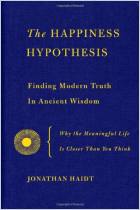
Recommendation
Before counselor Harville Hendrix, Ph.D. teaches you how to improve your relationship, he asks you to think about why you were attracted to your partner in the first place. The answer, he explains, is that you were looking for a mate who possesses the same basic qualities as your parents. Why? Because people subconsciously seek relationships with those who will exorcise their childhood pain. Unfortunately, most people tend to reopen – as opposed to healing – these wounds in their adult liaisons, leading to the “power struggle” that ensues in many relationships. Hendrix and his wife, Dr. Helen Lakelly Hunt, say that the way out of this destructive cycle is to practice the tenants of “Imago Relationship Therapy,” which they created. Their therapeutic approach includes making a true, lifelong commitment, treating each other in a loving manner, learning how to communicate constructively and eliminating negativity from your relationship. You may well find some benefits in the Imago approach even if you don’t fully buy Hendrix’s basic parent-seeking premise. The authors have trained some 2,000 therapists to use this approach, although Part III offers solid exercises you can do yourself. If you are seeking a relationship self-help book that discusses how to avoid getting hurt, how to deepen your communication and how to build a long-term connection, getAbstract recommends this bestseller.
Summary
About the Author
Bestselling author Harville Hendrix, Ph.D., co-created Imago Relationship Therapy with his wife, Helen Lakelly Hunt, Ph.D. Hendrix, a clinical pastoral counselor, also wrote Keeping the Love You Find: A Personal Guide. He and Hunt co-authored Giving the Love that Heals: A Guide for Parents.










Comment on this summary